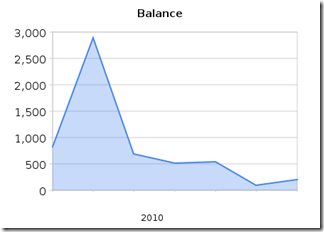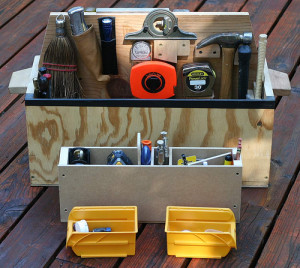By Yelizavetta Kofman of The Lattice Group, originally published by Shareable Magazine.
Every morning, Brian Roth, a headhunter, drives from his apartment in Los Angeles to BLANKSPACES, where he pays $600 a month for a place to work. This isn’t a private office; Brian shares his “workstation” with a revolving cast of characters, including (depending on the day) a talent manager, a web designer, and a screenwriter. Thanks to an open office plan and Brian’s commanding voice, there are about thirty other BLANKSPACES members within earshot, all sharing their own workstations.
Welcome to BLANKSPACES, one of the many coworking spaces popping up around the country, offering desks and other resources to independent workers for an hourly, weekly, or monthly fee. This being Shareable, you’ve probably already heard of it. If not, you can read about it in The New York Times here and here and previously on Shareable.
These articles and others like them will tell you the same thing: that coworking is ingenious, offering independent workers a sane alternative to loud designer coffee establishments and toddler-infested home offices. Add a collegial but uncompetitive environment, a pinch of networking, some free printing, and voila, a Work 2.0 darling is born.
All the praise coworking has received to date is well deserved. The idea is extremely innovative and full of potential. And yet, even the shiniest, techiest, most flexible workspace can’t fully conceal a gaping problem with our 2.0 economy: the growing cadre of independent workers that lack the most basic worker protections and safety net. How did this situation emerge and what do the individuals affected by it really think? Of course, providing these protections and safety nets is not the goal, nor could it be, of coworking businesses. But coworking establishments offer a unique look into the lives of independent workers, traditionally scattered across individual home offices and mixed in with casual coffee house patrons.
The Emerging Model of Coworking
What started as work space conceived, organized, and managed by and for independent workers is proving to be a good business model. Entrepreneurs in cities like San Francisco and New York, where by some estimates freelancers make up a third of the workforce, need only talk to their own friends to realize that independent work is a fast-growing career path. With the steady expansion of coworking sites–you can now find them all over the country, from Berkeley to Boise–businesses are responding to a growing need and banking on the future growth of independent work.
Just how big is the independent workforce? No one really knows.
Getting good statistics on workers that are flexible by definition is a tall order. The Bureau of Labor Statistics tracks “nonstandard employees,” a catch-all that includes temporary agency employees, independent contractors, freelancers, on-call workers, and consultants. According to this definition independent workers total 14.8 million workers, or about one in 10 employees. And this isn’t even counting small business owners, which the BLS counts as employees of their own firms and therefore “standard” workers, even if these individuals have no additional employees.
Whereas temps and independent contractors were once relegated to lower wage jobs like construction and clerical, the fastest growing areas of independent work are now in well-paying professional fields like media, technology, legal, and financial services. According to Working Today, the research arm of the Freelancers Union, the average New York City freelancer has a college degree and is well-paid. Independents are innovators and risk takers, frequently touted as the heart and soul of creative centers like San Francisco and Los Angeles.
Though all workers have had to make sense of and deal with major changes in the economic landscape–the structural shift from a manufacturing economy to a service and knowledge-based one; intensified competition for U.S. companies; deregulation, union decline, and rapid technological advancements to name a few–in many ways, independent workers are the vanguard of this brave new world.
The benefits of a portfolio-based lifestyle are many: greater autonomy, creative control, flexibility of where and when to work. Countless articles relate success stories and bestselling books offer to show us the way (The Four Hour-Workweek: Escape 9-5, Live Anywhere, and Joing the New Rich just about sums it up). But taking into consideration the costs and benefits of independent work, and trying to analyze the situation for the average Joe, not just the superstars, sociologists are on the fence.
The optimistic camp maintains that opportunity for professional, rewarding and de-institutionalized self employment in the ‘knowledge economy’ is considerable. The pessimistic theory is that precarious, non-standard contracts easily exploitable by large companies who no longer have to provide even a modicum of benefits will lead to a ‘Brazilianization’ of the West.
The few existing empirical studies of independent workers show mixed results. One study found that a majority of freelancers become self-employed to follow an interest or have always wanted to be independent. Another found that 16 percent of professionals in 2000 became independent as a result of employer demand–an obvious push factor.
Back at BLANKSPACES, where I’ve spent the last six months conducting an ethnographic study as part of my doctoral studies, I see evidence of both push and pull. Marisa, a screenwriter, has wanted to write Hollywood movies since she was a little girl growing up in the boonies of North Carolina. On the other hand Deborah, the former VP of Marketing for a large company, loved her previous job. She transitioned to consulting because the economy changed; steep budget cuts in her department made the job “less fun.” But now she’s frustrated by the lack of resources of her new clients: “Every budget item for them is a big decision,” she tells me with a tense shrug.
Organizing Coworkers
It’s hard to categorize coworkers. And that’s part of what makes coworking so great: you get to rub elbows with people from all walks of professional life, with different experiences and different expectations. Still, I’ve found that more interesting story here is not the differences, but the unacknowledged similarities. The untold story about coworking is that many of these workers lack the kind of worker benefits and protections granted traditional employees.
Take health care. Most people I talked to at BLANKSPACES pay for their own health care plans, but almost everyone admits that there have been times when they have gone uncovered. Marisa has never had health care coverage but assures me she’s really careful: “I don’t ski, I don’t roller skate, I don’t walk on crooked sidewalks!” Later, when she learns a friend has cancer, she admits it’s a wake-up call and that not having health coverage is scary. I’m pretty sure she still doesn’t have any, though. It’s no wonder: the Freelancers Union has calculated that an independent worker living in New York City with no dependents must earn over $120,000 per year to afford the cost of an individual health care plan premium (calculated based on a 5% income-to-premium ratio with the average premium costing $521).
Sure, some independent workers receive health care coverage through their spouse–which I imagine creates its own host of problems–but a 2010 survey of 3,000 independents by the Freelancers Union reports that in 2010, 18% of respondents had to give up their health insurance all together and 35% changed plans to ones that offered fewer benefits.
In addition to the health care mess, independent workers typically don’t qualify for unemployment insurance–though according to the same survey, 49 percent of respondents experienced periods of unemployment in the preceding year. The median spell without work was a full 16 weeks.
Independent workers are also taxed unfairly, paying both self-employment tax or unincorporated business tax (notably, not in New York City) and income tax. And when deadbeat clients don’t pay, independent workers have few options. Marisa has been struggling to get one of her clients to pay her for an ongoing writing project. The client is weeks late, but keeps demanding revisions. She’s stuck between a rock and a hard-place: she wants to demand back-payment before she continues working but she’s afraid they’ll just find someone else. Independent workers rarely have the resources for a legal battle and, without an accounting department, often spend valuable work time chasing down nonpaying clients. Cash, the talent manager who shares a workstation with Brian, tells me he just takes the losses and tries to learn from the experience.
Surrounded by individuals with similar circumstances—like, ahem, at a coworking space—we might expect that independent workers would recognize that the current work system in the U.S. leaves them without important protections. At the very least, I expected to hear some kvetching among the regulars at BLANKSPACES. But I never did. The independents I’ve met are independent through and through. Most are deeply passionate about their work and grateful for the autonomy and flexibility their independent status affords them. If they have to make some sacrifices, like pay for their own health care or live with uncertainty, so be it. As an education consultant at BLANKSPACES once told me, “there are bigger problems in the world.”
That is certainly true. By most standards, the independent workers that frequent coworking spaces are privileged members of the professional elite, with their college educations and white-collar jobs. On the other hand, many of the “bigger problems” in the U.S. stem from a deeply precarious economic environment that has, for at least the last 30 years, redistributed financial burdens from employers and governments to employees. This is a huge retreat from the New Deal and in stark contrast to the growth of universal social welfare protections in other rich, industrialized countries (see here, for example). If privileged, college-educated workers don’t demand workplace benefits and protections for themselves, my feeling is that our government will continue to sleepwalk its way through the 21st century, happily ignoring the fact that our economy has changed but our public policies have not.
One problem is that as some of my fellow coworkers at BLANKSPACES and other independents reading this, will object to my characterization of employers. Some independent workers are employers themselves! And even if they don’t have employees, many see themselves as business owners—with all the bourgeois class consciousness that entails. Coworkers see themselves as freelancers or consultants or creatives or business owners. On top of that, some feel they’re only going to be independent for a short spell. Others hope to sell their start-up and retire early. In short, few would self-identify as part of the independent workforce and even fewer are itching to do something about it.
Here’s the rub, people: the very diversity that makes coworking such a dynamic workplace experience also keeps about a third of the workforce from realizing they’re in a pretty similar, shoddy, safety-net-less boat and that they’re letting the government and the larger companies that use their services off the hook. Independence at this price is bad bargain for independent workers, and for society as a whole. Independent workers shouldn’t have to shoulder all the risk. If you’re an independent worker, here’s a few tips to help you get what all workers deserve:
If you want to fight back, try these simple steps:
1. Talk to other freelancers and independents, share your experiences, and find common ground. This is the first step to collective action.
2. Get educated. Learn about the worker protections and benefits you don’t have. Demand the protections you deserve.
3. Join the Freelancers Union. Even if you don’t want their lackluster insurance benefits or are only planning to be a freelancer for a short period of time, join. In all likelihood, you will be without a traditional employer more than once in your lifetime and the more members the Freelancers have, the more they can fight for better legislation for all nonstandard workers. Plus, it’s free.
4. Contribute to the Freelancers Union PAC. This political action committee supports the campaigns of independent-friendly political candidates. Let’s face it, in D.C. money talks.
5. Support national and state campaigns for benefits that help workers focus on working, like paid parental leave, the Unemployment Insurance Modernization Act (UIMA), and public child care.
By Yelizavetta Kofman of The Lattice Group, originally published by Shareable Magazine.








